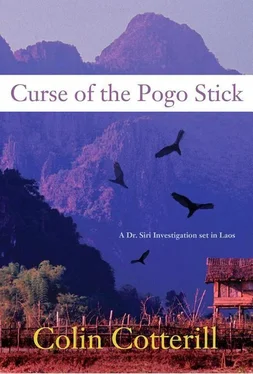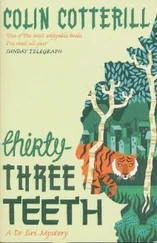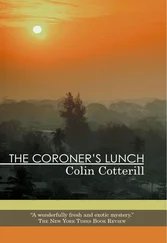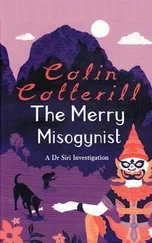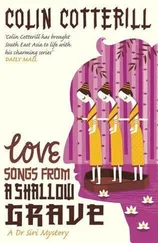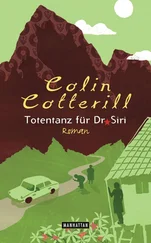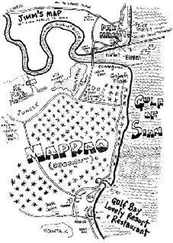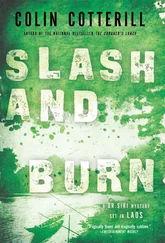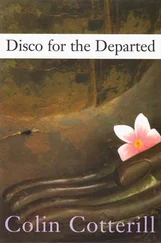Colin Cotterill - Curse of the Pogo Stick
Здесь есть возможность читать онлайн «Colin Cotterill - Curse of the Pogo Stick» весь текст электронной книги совершенно бесплатно (целиком полную версию без сокращений). В некоторых случаях можно слушать аудио, скачать через торрент в формате fb2 и присутствует краткое содержание. Жанр: Криминальный детектив, на английском языке. Описание произведения, (предисловие) а так же отзывы посетителей доступны на портале библиотеки ЛибКат.
- Название:Curse of the Pogo Stick
- Автор:
- Жанр:
- Год:неизвестен
- ISBN:нет данных
- Рейтинг книги:5 / 5. Голосов: 1
-
Избранное:Добавить в избранное
- Отзывы:
-
Ваша оценка:
- 100
- 1
- 2
- 3
- 4
- 5
Curse of the Pogo Stick: краткое содержание, описание и аннотация
Предлагаем к чтению аннотацию, описание, краткое содержание или предисловие (зависит от того, что написал сам автор книги «Curse of the Pogo Stick»). Если вы не нашли необходимую информацию о книге — напишите в комментариях, мы постараемся отыскать её.
Curse of the Pogo Stick — читать онлайн бесплатно полную книгу (весь текст) целиком
Ниже представлен текст книги, разбитый по страницам. Система сохранения места последней прочитанной страницы, позволяет с удобством читать онлайн бесплатно книгу «Curse of the Pogo Stick», без необходимости каждый раз заново искать на чём Вы остановились. Поставьте закладку, и сможете в любой момент перейти на страницу, на которой закончили чтение.
Интервал:
Закладка:
Comrade Singsai had passed away in his sleep during an excruciatingly long speech discussing the allocation of cattle. It was rather sad that his last memory on earth might have been how to encourage bulls to increase their semen count. But he was old and he’d endured a full life. He hadn’t been able to summon the energy to pull himself out of a pleasant dream and back into that never-ending conference. Who could blame him? Siri was sorely tempted to write “He just died” on the death certificate but he knew that wouldn’t satisfy anyone. He’d invited Haeng and a couple of the other seniors to observe the autopsy, and, as he expected, they’d declined.
Siri was surrounded by five liter cans of exotic fruits from China, crates of vegetables, stacks of packs of processed meat, sacks of rice, large bottles of soft drink syrup, tins of sardines and pilchards and a whole wall of goods labeled in Russian that could have been anything. There was enough to feed a medium-sized town for a year. And tucked at the back of the potatoes were several pallets of Vietnamese 33 beer in dusty bottles. In the arsenal of most coroners is a piece of equipment known as a skull chisel. It’s primarily used to separate the calvarium from the lower skull but it has a useful secondary purpose in that it opens beer bottles very well. Siri looked at his watch, popped a 33, and made himself comfortable on the rice sacks.
From somewhere beyond the formality of the Party gathering, the mystical sounds of a geng pipe drifted across the plain. He’d heard it before on the grounds of Mahosot before leaving Vientiane. He let the music seep into the pores of his skin and smiled at familiar phrases and intimate passages. It was a magical, heavenly refrain that felt out of place in such a godless spot.
The decision to hold the national conference in the old city of Xiang Khouang had been pure showmanship. After a prolonged period of Royalist-American bombing, the only structures still standing were one house, a broken hospital wing, and a twenty-foot Buddha with half a head and shrapnel wounds. There was nowhere to eat or sleep or even to hold a conference in the decimated place. But the Lao People’s Revolutionary Party had a point to make regardless of the inconvenience to the participants. The stage and a thousand chairs and countless tarpaulins had been trucked down from Phonsavan, the new provincial capital. And there in the center of the main street they gave their speeches and clapped and let the defeated enemy know who was in charge. All around them in the pockmarked landscape, several thousand tons of unexploded ordnance lay hidden beneath the dried mud. Leisurely strolling during the breaks was strongly discouraged. For the same reason no sightseeing tours to the Plain of Jars had been arranged. Instead, each participant had been given a color postcard of a buffalo beside an ancient four-foot pot in his orientation folder.
At the end of each day, the delegates had been bused back to Phonsavan to eat and sleep in preparation for the next day’s ordeal. And it was in a dining hall storeroom that Siri now sat. An hour and two more beers after his arrival he’d hidden the empty bottles behind a stack of mandarin oranges and gone to the door with his bag. Judge Haeng and two officials were seated at a table in the dining room.
“It’s done,” Siri said and he laid the death certificate in front of the judge. It read “cardiac arrest.”
“See, Siri?” Haeng said. “See? That wasn’t so difficult, was it?”
“Judge Haeng,” Siri nodded, “you’re right again. Oh, by the way, I redressed him for collection.”
Siri was sure the officials would order one or two laborers to remove the cadaver. Nobody would think to check under the shirt. Comrade Singsai would return to his family with his body and his dignity intact.
“Oh, Siri,” Haeng called after him as he headed out into the evening chill. “Get to bed. We’re off early in the morning.”
Siri’s response wasn’t audible, which was perhaps just as well.
Exposed Nurses
The hospital had allowed the new nurses ten exposures on the official Mahosot camera. It was a Brownie, a souvenir of the American days when money was available and the stores had been stocked with medicines and equipment. But now, as Director Suk made perfectly clear, the camera was not for recreational purposes. It was for recording medical achievements (of which there had been none to date), documenting autopsies, and recording historical events. The arrival of the first batch of nursing students to return from Bulgaria was technically an historic event so the girls had been given permission to use up the remaining exposures on the film as long as they also captured the chrysanthemums.
Dtui accompanied the nursing cadre when she went to pick up the photographs from the pharmacy behind the evening market. Developing photos had become something of a sideline for the pharmacist since film was hard to come by and so few people had moments to celebrate. Director Suk had made copies of the Mahosot pictures for each of the eight nurses. But one of the young ladies had been so impressed by the facilities at the country’s leading hospital, she’d fled the dormitory and was last seen floating across the Mekhong holding onto an inflatable neck brace. That left one set of photos for Dtui.
With the office still inhabited by auditors, Dtui and Daeng spread the pictures across the dissecting table.
“Where do we start?” Dtui asked.
“Well, anyone with binoculars and a false moustache,” Daeng said. “If that fails we’ll settle for someone who looks out of place.”
That objective was simplified by the fact that seven of the ten photos were exclusively of seven smiling nurses, one unsmiling nurse, and a flower bed.
“I don’t suppose the nurse who absconded had anything to do with it, do you?” Dtui asked.
“I imagine there are easier ways to get into the hospital grounds than spending four years in Sofia, but we won’t rule it out.”
“Right!”
One of the remaining three snaps was a very good picture of the morgue itself with nurses pointing to the sign and one young thing pretending to be in the throes of a horrible death. That left only two with people in the background. One, of the nurses walking across the grounds, contained a handful of patients who had been shooed from the wards to enjoy the therapeutic rays of the sun. They all looked convincingly ill. Only the last shot offered any hope. It was what is known in photographic terminology as a cock up. In the foreground was an out-of-focus breast and an arm, but in the background was a panorama of three hospital buildings with several dozen people standing and seated and walking about.
They were far too small to identify. Neither Daeng’s reading glasses nor the base of a petri dish could magnify them to any recognizable size.
“Damn,” said Dtui.
“Patience,” said Daeng. “We’ll find a way to enlarge them.”
On the map provided by the Xiang Khouang constabulary, the road to Luang Prabang was a distinct red line. It began in the old capital of Muang Khun and headed northwest through Phonsavan, the replacement capital, which was still not entirely built. It proceeded past the Plain of Jars before wriggling its way west to Luang Prabang. And indeed the journey to just beyond the Phonsavan intersection was comparatively smooth and untroubled. The convoy consisted of two armored vehicles, two Land Rovers, and one open jeep crammed with armed guards. Its composition belied the theory that there was no longer an enemy to be afraid of.
The first Land Rover contained the deputy head of the National Police Coordinating Committee, his Vietnamese adviser, and Comrade Colonel Phat, the adviser from Hanoi attached to the Justice Department, or, more specifically, attached to Judge Haeng. Since the signing of the Treaty of Cooperation and Friendship in July, there was hardly a department head who didn’t sport his own Vietnamese minder like an unwanted hump. The judge himself had opted to ride in the second Land Rover with Siri and a bodyguard. This was not an indication of his growing fondness for the coroner but rather an escape from more unwanted advice. Siri had offered to travel in the jeep with the soldiers but Haeng reminded him of how inappropriate that would be for a man of his standing. Siri pointed out that socialism had removed class barriers but the judge threw an axiom into the ring for which there was no rhyme or reason or riposte: “The yellow-headed cornsucker bird can be starved and beaten and spun around a hundred times and transported a thousand miles but still its innate instinct will lead it home to a familiar land. In the same way, the common man will always know where he belongs.”
Читать дальшеИнтервал:
Закладка:
Похожие книги на «Curse of the Pogo Stick»
Представляем Вашему вниманию похожие книги на «Curse of the Pogo Stick» списком для выбора. Мы отобрали схожую по названию и смыслу литературу в надежде предоставить читателям больше вариантов отыскать новые, интересные, ещё непрочитанные произведения.
Обсуждение, отзывы о книге «Curse of the Pogo Stick» и просто собственные мнения читателей. Оставьте ваши комментарии, напишите, что Вы думаете о произведении, его смысле или главных героях. Укажите что конкретно понравилось, а что нет, и почему Вы так считаете.
